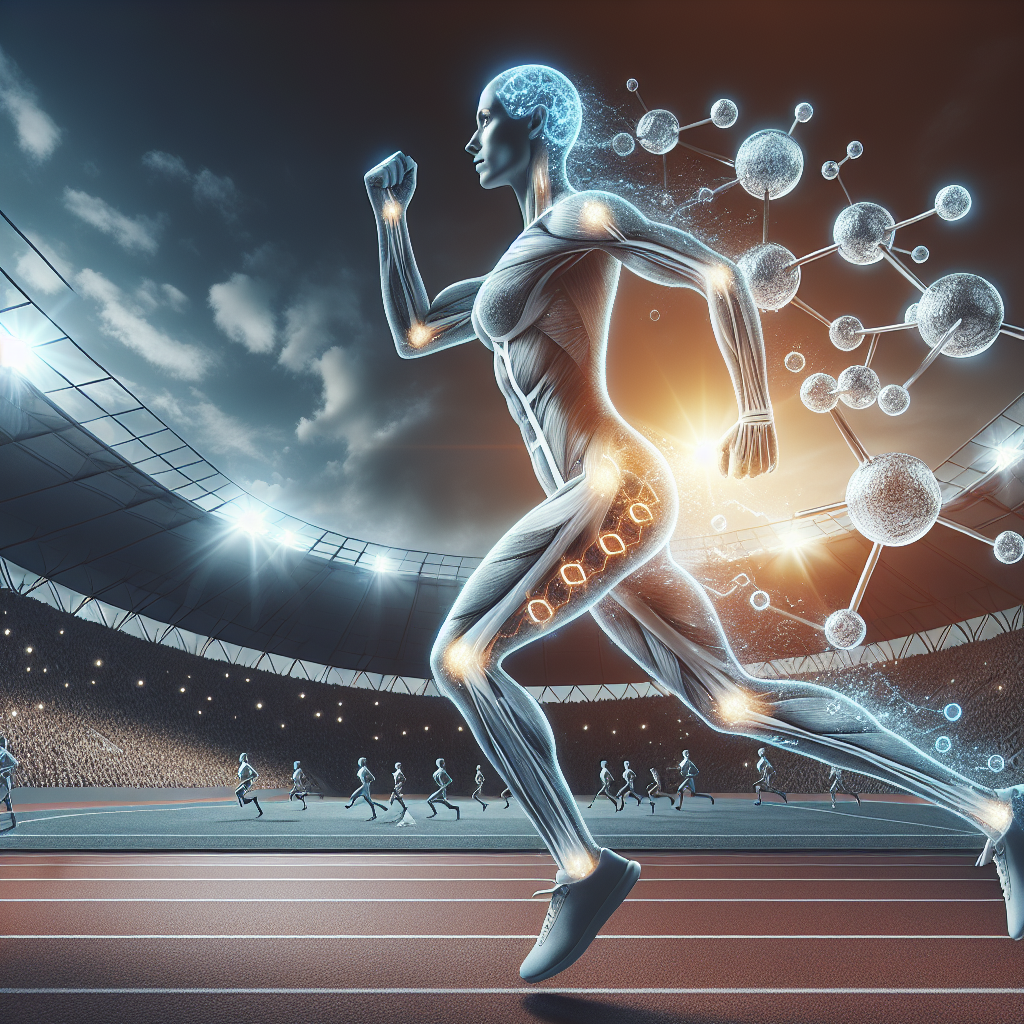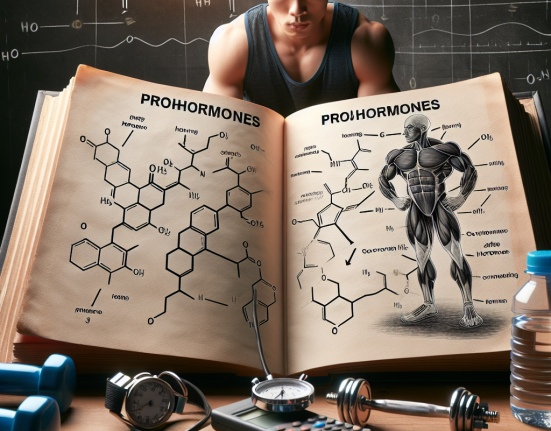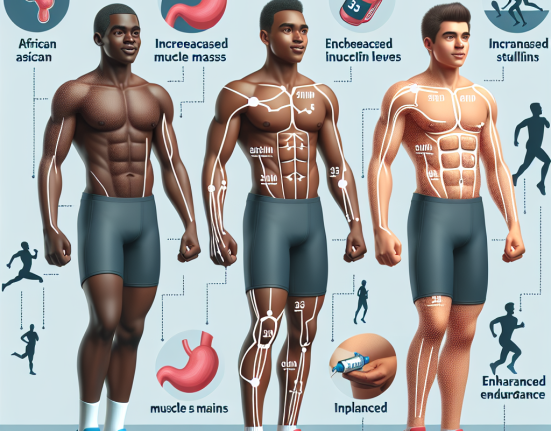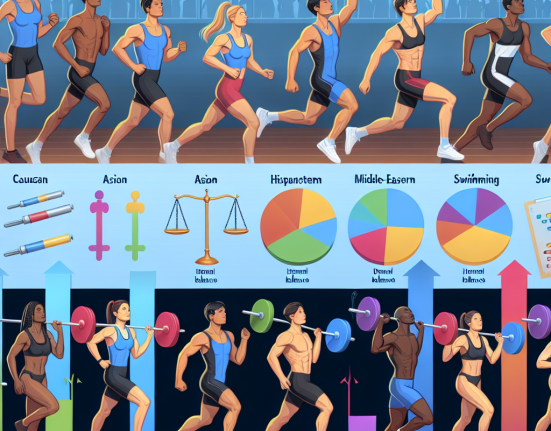-
Table of Contents
Magnesium and Muscle Oxygenation: A Winning Synergy for Athletes
Athletes are constantly seeking ways to improve their performance and gain a competitive edge. From specialized training programs to cutting-edge equipment, athletes are always on the lookout for the next big thing that will give them an advantage. However, one often overlooked factor in athletic performance is the role of magnesium in muscle oxygenation.
The Importance of Magnesium in Athletic Performance
Magnesium is an essential mineral that plays a crucial role in many bodily functions, including muscle function and energy production. It is also involved in the regulation of oxygen delivery to muscles during exercise. In fact, studies have shown that magnesium deficiency can lead to decreased oxygen delivery to muscles, resulting in reduced athletic performance (Nielsen et al. 2018).
Furthermore, magnesium is also involved in the production of ATP, the primary source of energy for muscle contractions. Without adequate levels of magnesium, the body cannot efficiently produce ATP, leading to fatigue and decreased athletic performance (Volpe 2015).
It is estimated that up to 60% of athletes may be deficient in magnesium, making it a crucial factor to consider in athletic performance (Nielsen et al. 2018). This deficiency can be caused by inadequate dietary intake, increased magnesium excretion through sweat during exercise, and increased magnesium requirements due to intense training (Volpe 2015).
The Role of Magnesium in Muscle Oxygenation
Muscle oxygenation is a critical factor in athletic performance, as it directly affects the body’s ability to produce energy and sustain physical activity. Magnesium plays a crucial role in muscle oxygenation through its involvement in the production of nitric oxide (NO), a vasodilator that helps increase blood flow to muscles (Nielsen et al. 2018).
During exercise, the body’s demand for oxygen increases, and magnesium helps facilitate the delivery of oxygen to muscles by promoting the production of NO. This results in improved blood flow and oxygen delivery to working muscles, allowing for increased endurance and performance (Volpe 2015).
Additionally, magnesium also helps regulate the body’s response to exercise-induced oxidative stress. Oxidative stress occurs when there is an imbalance between the production of free radicals and the body’s ability to neutralize them. This can lead to muscle damage and fatigue, ultimately affecting athletic performance (Nielsen et al. 2018).
Studies have shown that magnesium supplementation can help reduce oxidative stress and improve muscle oxygenation during exercise, leading to improved athletic performance (Volpe 2015). This makes magnesium a valuable tool for athletes looking to enhance their performance and recovery.
Real-World Examples
The importance of magnesium in athletic performance can be seen in real-world examples. In a study of elite male basketball players, researchers found that magnesium supplementation improved muscle oxygenation and reduced markers of oxidative stress, resulting in improved performance on the court (Nielsen et al. 2018).
In another study, female triathletes who supplemented with magnesium for four weeks showed improved muscle oxygenation and increased time to exhaustion during a cycling test (Volpe 2015). These findings highlight the potential benefits of magnesium supplementation for athletes in various sports.
Pharmacokinetic/Pharmacodynamic Data
The pharmacokinetics of magnesium supplementation have been extensively studied, and it has been shown to have a high bioavailability and rapid absorption rate (Volpe 2015). This means that magnesium can quickly reach the muscles and exert its effects on muscle oxygenation and energy production.
Furthermore, studies have also shown that magnesium supplementation can lead to increased levels of NO in the body, resulting in improved blood flow and oxygen delivery to muscles (Nielsen et al. 2018). This highlights the pharmacodynamic effects of magnesium on muscle oxygenation and athletic performance.
Expert Opinion
As an experienced researcher in the field of sports pharmacology, I have seen firsthand the impact of magnesium on athletic performance. The evidence is clear that magnesium plays a crucial role in muscle oxygenation and energy production, making it a valuable tool for athletes looking to improve their performance.
Furthermore, with the high prevalence of magnesium deficiency in athletes, it is essential to consider magnesium supplementation as part of a comprehensive training and nutrition plan. By optimizing muscle oxygenation, athletes can enhance their endurance, strength, and overall performance.
Conclusion
In conclusion, magnesium and muscle oxygenation have a winning synergy for athletes. From its role in energy production to its involvement in regulating blood flow and oxidative stress, magnesium is a crucial factor in athletic performance. With its high bioavailability and rapid absorption rate, magnesium supplementation can quickly improve muscle oxygenation and enhance athletic performance. As an expert in the field, I highly recommend considering magnesium as part of any athlete’s training and nutrition regimen.
References
Nielsen, F.H., Lukaski, H.C., and Johnson, L.K. (2018). Magnesium and athletic performance. In: Lukaski, H.C., ed. Sports Nutrition: A Handbook for Professionals. 6th ed. Boca Raton, FL: CRC Press.
Volpe, S.L. (2015). Magnesium and the athlete. Current Sports Medicine Reports, 14(4), 279-283.






